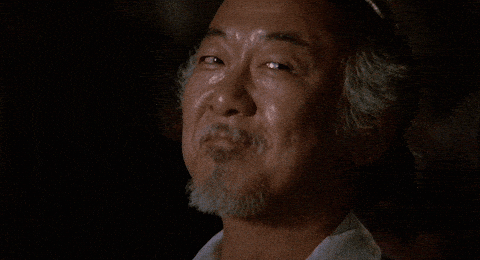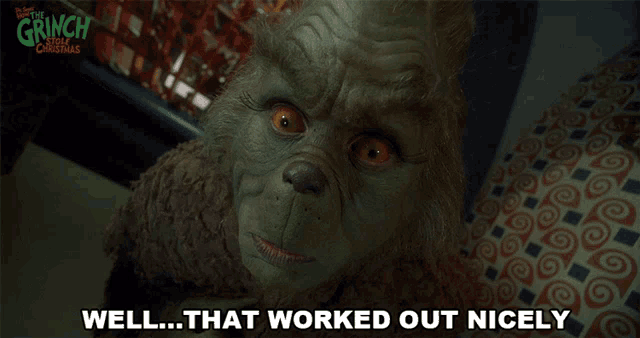What’s The Worst That Could Happen?
One trait shared by the best founders I meet is a propensity to action. Specifically, a bias towards action over excuses. When an new opportunity arises, these individuals ask themselves, “how can I make this happen?” or “how can I take advantage of this opportunity?” as opposed to starting with the reasons why it’s going to be hard.
Case in point: a few weeks ago, I announced Game On, a 3-week long experiment in the heart of San Francisco to accelerate Canadian founders. The goal of the program is to evoke a mindset shift in early-stage founders by exposing them to the velocity and intensity of Silicon Valley’s ecosystem through mentorship, speakers and intentional experiences.
The program will be entirely free for participating founders thanks to support of some incredible partner organizations. But there’s a caveat: the founders have to cover their own transportation and living expenses while in San Francisco.
A handful of people publicly and privately suggested that the need for founders to cover their own expenses would make the program “inaccessible” to some. Meanwhile, one founder emailed me to let me know that they had already arranged for a couch to sleep on and pre-purchased a refundable plane ticket, “…in case we’re selected.”
I firmly believe that velocity is the metric that matters most to startups. A big part of that is a willingness to take action on the part of the founders. And while it might seem easy for me to suggest that the best founders “just get it”, for many people it’s neither easy nor natural. Thankfully, in my experience this is a behavior that can be learned.
It turns out that even founders who are naturally risk-averse can develop a bias towards action. And it starts by understanding the real — and realistic — worst case scenario.
Scaredy Squirrel has a wild imagination
Focusing on the worst case that can realistically occur in a decision has helped me to lean into more opportunities while making faster decisions. Even really big ones. Here’s an example:
Many years ago, some friends of mine from grad school approached me about joining a new startup they were building. It was in a space I wasn’t familiar with but I was intrigued by the opportunity to work with them (they were three of the smartest guys I knew at the time, which is saying a lot coming out of Stanford). Having lived through the dot com bubble, I knew that there was a high likelihood that the startup would fail. So, I thought about the worst case scenario:
My friends had just raised a small pre-seed round — enough money to last about a year
In the worst case scenario, the company would fail after a year and I would struggle to find another job
Given that I was on an H-1B visa, if I didn’t find a new job in time, my visa would expire and I would have to go back to Canada
That would likely mean moving back in with my parents while I figured out what to do next
So, the realistic worst case scenario was that after a year, I would have to leave the U.S., move back in with my parents, and figure out a new job. But in exchange, I would get to spend a year working alongside three of the smartest people I knew. That’s a pretty good worst case scenario if you ask me. I leaned in and the result turned out to be far from the worst case.
Of course, not all decisions turn out the way you hoped, which is why it’s essential that you think about the worst case as part of your decision process (if you’ve ever heard the phrase “hope for the best, plan for the worst,” that’s what I’m talking about). But more than that, you need to mitigate the worst case scenario whenever possible.
If you assume that the worst case scenario will occur, are there things you can do to make it “not so bad”?
I recently wrote about my propensity to travel and the fact that traveling is an underrated superpower. As much as I do it, traveling does come with real costs:
Financial costs
Opportunity costs
Personal costs (time away from family, etc.)
In many cases, it can be hard to know in advance if a given trip will be “worth it.” A conference might end up sucking. A speaking opportunity might not deliver the expected ROI. A 3-week trip to San Francisco to participate in an experiment to accelerate Canadian founders might not actually accelerate you.
How do you mitigate the worst case scenario in situations like these?
Before committing to a trip, I look at whether or not there are things I can do to generate value even if the worst case occurs. For example:
Are there additional people I can arrange to meet while I’m there (either personally or professionally)?
Can I instigate a founder meetup or other easy / low-cost event (like these)?
Is it somewhere I just want to personally visit?
At the same time, I generally try to minimize the financial/opportunity/personal costs by keeping the trip as short as possible. After doing all of that, I’ll make a decision based on the “new and improved” worst case scenario.
It turns out, if you mitigate the worst case scenario as part of your decision process, many seemingly obvious “noes” turn into pretty clear “yesses” (and the ones that remain “noes” are all the more obvious). This extra step can make it much easier to say yes to an opportunity, particularly if the upside is significant.
And this approach doesn’t only apply to work-related decisions.
Years ago, I met a girl who was living in Hawaii at the time. We kept in touch for a few months, until one day I asked her what it would take for the two of us to go out on a date. She responded, “when do you want to come to Hawaii?”
I thought about it for a moment, and replied, “How about this weekend?”
When I told some friends of my plan, they thought I was crazy. Why would I fly all the way to Hawaii just to go on a date?
Aside from the fact that I really liked this girl, I thought about the worst case scenario.
In the absolute worst case, we would meet up for drinks, it would be super awkward and I’d be stuck in Hawaii by myself for the rest of the weekend. In other words, the worst case scenario was that I would get a desperately-needed weekend break in Hawaii right before having to go out and raise DataHero’s series A. That’s a pretty good worst-case scenario if you ask me.
Ten years and two kids later, it remains one of the best decisions of my life.



